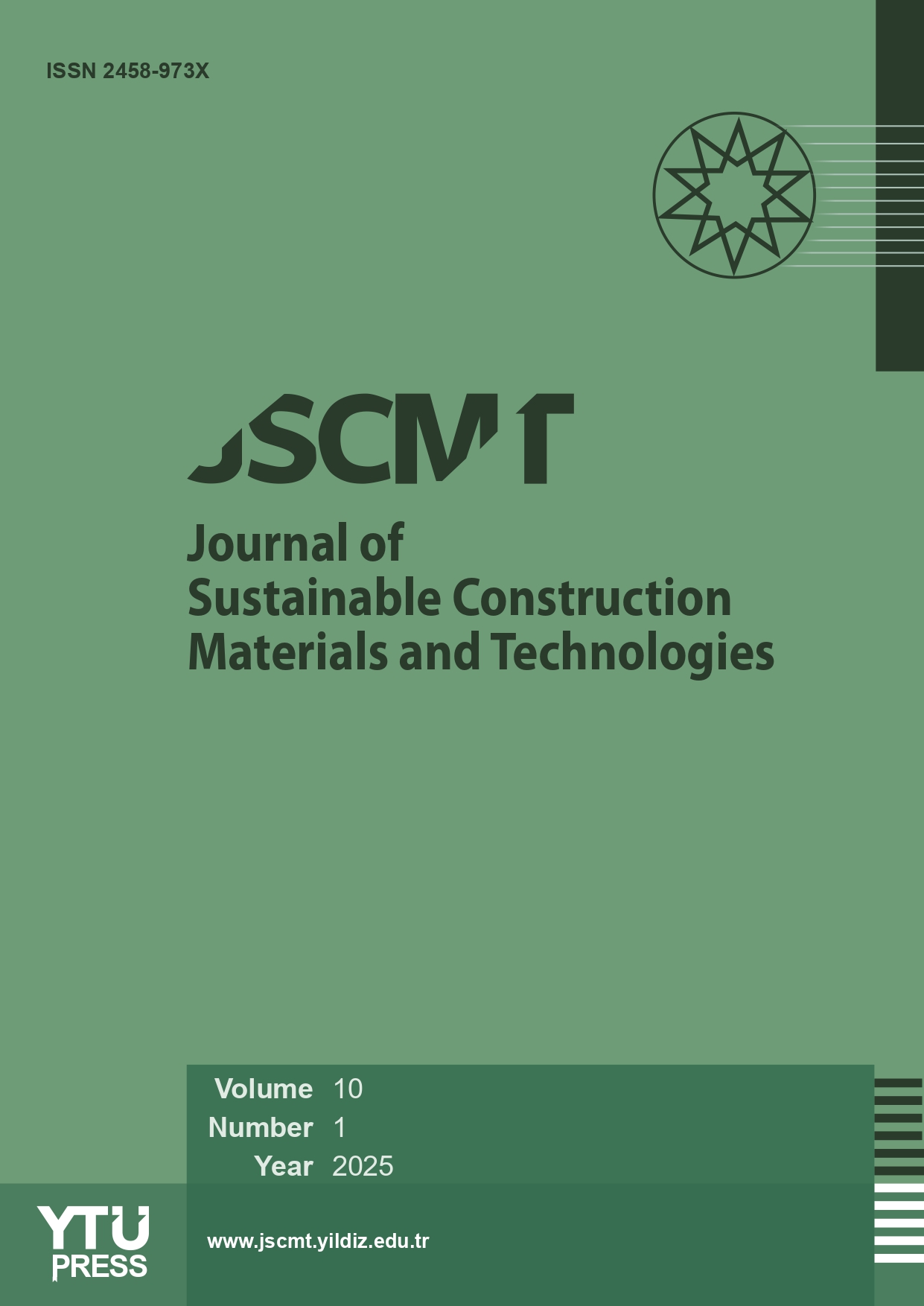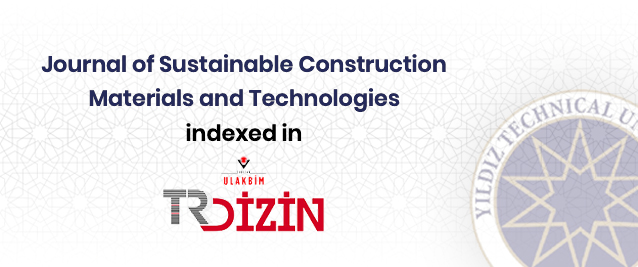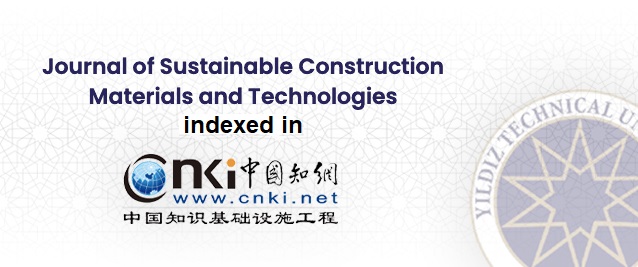Abstract
Lightweight cellular hollow concrete (LCHC) block is a masonry unit with excellent thermal and acoustic performance, fire resistance, and high weathering resistance manufactured by precast technique. This work presents an experimental study that investigates the effects of partial volumetric replacement of Portland cement by calcium sulfate anhydrite on precast properties, especially the hardening time of the products, thermal insulation properties, and mechanical
properties of the LCHCs. LCHC block is produced by the mixing of Portland cement (PC), anhydrite III (ANH), expanded perlite (EP), pumice (PU), and calcite (CA) for building applications. Experimental studies were carried out on both 10x10x10 cm3 cube specimens and 19x19x39 cm3 block specimens with 16 different mixture batches. The unit weights and compressive strengths of the cube specimens decreased as the ANH replacement level increased, depending on the decrease in the cement ratio. However, it was observed that the compressive strength of the block specimens increased up to the volumetric replacement level of 1.86%. As expected, the specimens' thermal conductivity values decreased with the unit weight. The most notable change in the specimens occurred during the hardening time. The hardening process
of the specimens can be completed up to 90 times faster than the control mixture. In addition, within the scope of the study, three formulations are presented in which the compressive strength and the elastic modulus of the wall sections made with LCHC blocks can be calculated, and the thermal conductivity value of the masonry block unit can be calculated.
















